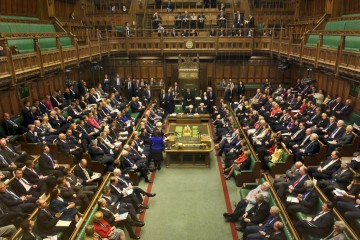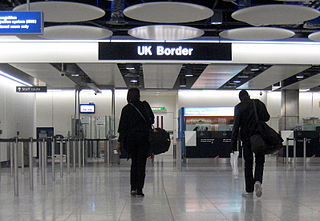
Brexit, voting, and political turbulence
Cross-posted from the Princeton University Press blog. The authors of Political Turbulence discuss how the explosive rise, non-normal distribution and lack of organization that characterizes contemporary politics as a chaotic system, can explain why many political mobilizations of our times seem to come from nowhere. On 23rd June 2016, a majority of the British public voted in a referendum on whether to leave the European Union. The Leave or so-called #Brexit option was victorious, with a margin of 52 per cent to 48 per cent across the country, although Scotland, Northern Ireland, London and some towns voted to remain. The result was a shock to both leave and remain supporters alike. US readers might note that when the polls closed, the odds on futures markets of Brexit (15 per cent) …

Brexiteers Must Fall: Why liberals and the left must combine forces to confront the Cecil Rhodes of the Twenty-First Century
History is written by the victors. In the two weeks that have followed the shock result of the United Kingdom’s referendum on EU membership, a profound sense of horror and foreboding has settled across liberal and progressive Britain. Whatever expectations the British people may have entertained throughout the course of the campaign, it is now painfully clear that the primary result of the referendum will be to hand control to a small number of right-wing demagogues dedicated to reversing the advance of modern cosmopolitan Britain. And this rag-tag cabal looks likely to set the narrative of democratic politics in Britain for years to come. Amidst flawlessly-crafted cries of ‘we want our country back’, Britain will be sold a bombastic, populist …

The Legal Framework: What happens if we vote for Brexit?
The EU referendum could be held as early as June so clarity is needed about what will happen in the event of a vote to leave. In this post Alan Renwick explains Article 50 of the Lisbon Treaty which sets out the procedure for leaving the EU. Under it a second in/out referendum of the type floated by Boris Johnson among others is not possible. Anybody suggesting that voters can vote to ‘leave’ safe in the knowledge that they can later change their minds is either playing with fire or manipulating voters disingenuously. 2016 looks likely to be the year in which voters get to decide whether the UK will stay in the European Union. If David Cameron secures a deal with other EU leaders …

MP expenses and their assessment in the media: Towards a more informed analysis
MPs’ expenses continue to fascinate the British media and public alike. Every autumn, the Independent Parliamentary Standards Authority[1] (IPSA) publishes a detailed breakdown of the House of Commons MPs’ expenses for the year, and news outlets rush to publish their analyses of this data. Tabloids (e.g. Daily Record) as well as broadsheets and magazines (The Guardian, The Economist) create rankings or tools that allow users to compare MPs’ expenses and single out big spenders. Such efforts are contextualised by the inveterate public ire over perceived excesses, exacerbated by the on-going austerity measures and a culture of ‘naming and shaming’. But most of these comparisons are highly problematic because they fail to provide important contextual information, simply comparing MPs’ total expenses (overall …

A Critical Case: The United Kingdom and New Public Management
Julián López Murcia interviews Christopher Hood and Ruth Dixon about their new book ‘A Government that Worked Better and Cost Less? Evaluating Three Decades of Reform and Change in UK Central Government’ which recently won the 2015 Louis Brownlow Book Award from the US National Academy of Public Administration.

The legality of military action in Syria: humanitarian intervention and the responsibility to protect
It now seems fairly clear that the US and the UK are set to take military action in Syria in the coming days in response to the recent chemical attacks there. The UK Prime Minister, UK Foreign Secretary and the UK Secretary of State for Defence have all asserted that any action taken in Syria will be lawful. But on what grounds will military action in Syria be lawful. As is well known, United Nations Charter prohibits the use of force in Art. 2(4), as does customary international law. The UN Charter provides 2 clear exceptions to the prohibition of the use of force: self defence and authorization by the UN Security Council. It is almost certain that there will be no Security Council authorization. In a previous post, I considered the possibility of a (collective) self defence justification for the use of force in response to a use of chemical weapons. The scenario contemplated then is very different from the situation that has emerged, and the language used, at least by the UK, does not hint at a use of force on the basis of national interest. However, President Obama in a CNN interview last week did seem to speak of self defence when he said “there is no doubt that when you start seeing chemical weapons used on a large scale … that starts getting to some core national interests that the United States has, both in terms of us making sure that weapons of mass destruction are not proliferating, as well as needing to protect our allies, our bases in the region.” A justification for force on this basis would sound like preemptive self defence in a way that is very close to the Bush doctrine. I find it hard to see the Obama administration articulating a legal doctrine of preemptive self defence claim in this scenario.

The status-less child in contemporary Britain
Over the last decade, Western governments have increasingly used enforced removals, assisted voluntary returns and denials of entry in the country as instruments for governing unauthorised immigration. The number of immigrants removed from the US with one of these tools has gone from 120,000 in 2001 to 395,000 in 2011. The capacity to enforce removals has been raised to the status of an indicator of the state’s capacity to protect its citizens. Sarkozy’s high profile campaign that led to the expulsion of thousands of Romanian Roma from France in 2010 is exemplar of the use of removal figures for gaining political capital. In the UK, between 2001 and 2011 the number of forced and assisted removals spiralled from 17,000 to …

Is the UK Border Agency ‘not fit for purpose’? What purpose exactly?
The Home Affairs Committee has recently published a report into the work of the UK Border Agency in which it criticises the UKBA for failing to deport more than 600 Foreign National Prisoners who were released between 1999 and 2006 and are still in the country. It also says the Agency is failing to clear the ever increasing “controlled archive” of unresolved cases in the Case Resolution Programme. The report calls on for the Home Office to ‘act immediately to deal with the public scepticism in the effectiveness of the UK Border Agency’. Keith Vaz MP (Labour), Chair of the Committee, said: The reputation of the Home Office, and by extension, the UK Government, is being tarnished by the inability …









